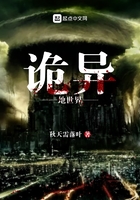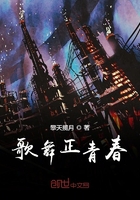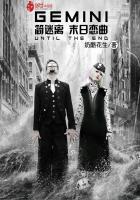No sooner were his eyes in slumber bound, When, from above, a more than mortal sound Invades his ears; and thus the vision spoke:
"Seek not, my seed, in Latian bands to yoke Our fair Lavinia, nor the gods provoke.
A foreign son upon thy shore descends, Whose martial fame from pole to pole extends.
His race, in arms and arts of peace renown'd, Not Latium shall contain, nor Europe bound:
'T is theirs whate'er the sun surveys around."These answers, in the silent night receiv'd, The king himself divulg'd, the land believ'd:
The fame thro' all the neighb'ring nations flew, When now the Trojan navy was in view.
Beneath a shady tree, the hero spread His table on the turf, with cakes of bread;And, with his chiefs, on forest fruits he fed.
They sate; and, (not without the god's command,)Their homely fare dispatch'd, the hungry band Invade their trenchers next, and soon devour, To mend the scanty meal, their cakes of flour.
Ascanius this observ'd, and smiling said:
"See, we devour the plates on which we fed."The speech had omen, that the Trojan race Should find repose, and this the time and place.
Aeneas took the word, and thus replies, Confessing fate with wonder in his eyes:
"All hail, O earth! all hail, my household gods!
Behold the destin'd place of your abodes!
For thus Anchises prophesied of old, And this our fatal place of rest foretold:
'When, on a foreign shore, instead of meat, By famine forc'd, your trenchers you shall eat, Then ease your weary Trojans will attend, And the long labors of your voyage end.
Remember on that happy coast to build, And with a trench inclose the fruitful field.'
This was that famine, this the fatal place Which ends the wand'ring of our exil'd race.
Then, on to-morrow's dawn, your care employ, To search the land, and where the cities lie, And what the men; but give this day to joy.
Now pour to Jove; and, after Jove is blest, Call great Anchises to the genial feast:
Crown high the goblets with a cheerful draught;Enjoy the present hour; adjourn the future thought."Thus having said, the hero bound his brows With leafy branches, then perform'd his vows;Adoring first the genius of the place, Then Earth, the mother of the heav'nly race, The nymphs, and native godheads yet unknown, And Night, and all the stars that gild her sable throne, And ancient Cybel, and Idaean Jove, And last his sire below, and mother queen above.
Then heav'n's high monarch thunder'd thrice aloud, And thrice he shook aloft a golden cloud.
Soon thro' the joyful camp a rumor flew, The time was come their city to renew.
Then ev'ry brow with cheerful green is crown'd, The feasts are doubled, and the bowls go round.
When next the rosy morn disclos'd the day, The scouts to sev'ral parts divide their way, To learn the natives' names, their towns explore, The coasts and trendings of the crooked shore:
Here Tiber flows, and here Numicus stands;Here warlike Latins hold the happy lands.
The pious chief, who sought by peaceful ways To found his empire, and his town to raise, A hundred youths from all his train selects, And to the Latian court their course directs, (The spacious palace where their prince resides,)And all their heads with wreaths of olive hides.
They go commission'd to require a peace, And carry presents to procure access.
Thus while they speed their pace, the prince designs His new-elected seat, and draws the lines.
The Trojans round the place a rampire cast, And palisades about the trenches plac'd.
Meantime the train, proceeding on their way, From far the town and lofty tow'rs survey;At length approach the walls.Without the gate, They see the boys and Latian youth debate The martial prizes on the dusty plain:
Some drive the cars, and some the coursers rein;Some bend the stubborn bow for victory, And some with darts their active sinews try.
A posting messenger, dispatch'd from hence, Of this fair troop advis'd their aged prince, That foreign men of mighty stature came;Uncouth their habit, and unknown their name.
The king ordains their entrance, and ascends His regal seat, surrounded by his friends.
The palace built by Picus, vast and proud, Supported by a hundred pillars stood, And round incompass'd with a rising wood.
The pile o'erlook'd the town, and drew the sight;Surpris'd at once with reverence and delight.
There kings receiv'd the marks of sov'reign pow'r;In state the monarchs march'd; the lictors bore Their awful axes and the rods before.
Here the tribunal stood, the house of pray'r, And here the sacred senators repair;All at large tables, in long order set, A ram their off'ring, and a ram their meat.
Above the portal, carv'd in cedar wood, Plac'd in their ranks, their godlike grandsires stood;Old Saturn, with his crooked scythe, on high;And Italus, that led the colony;
And ancient Janus, with his double face, And bunch of keys, the porter of the place.
There good Sabinus, planter of the vines, On a short pruning hook his head reclines, And studiously surveys his gen'rous wines;Then warlike kings, who for their country fought, And honorable wounds from battle brought.
Around the posts hung helmets, darts, and spears, And captive chariots, axes, shields, and bars, And broken beaks of ships, the trophies of their wars.
Above the rest, as chief of all the band, Was Picus plac'd, a buckler in his hand;His other wav'd a long divining wand.
Girt in his Gabin gown the hero sate, Yet could not with his art avoid his fate:
For Circe long had lov'd the youth in vain, Till love, refus'd, converted to disdain:
Then, mixing pow'rful herbs, with magic art, She chang'd his form, who could not change his heart;Constrain'd him in a bird, and made him fly, With party-color'd plumes, a chatt'ring pie.
In this high temple, on a chair of state, The seat of audience, old Latinus sate;Then gave admission to the Trojan train;
And thus with pleasing accents he began:
"Tell me, ye Trojans, for that name you own, Nor is your course upon our coasts unknown-Say what you seek, and whither were you bound:
Were you by stress of weather cast aground?















